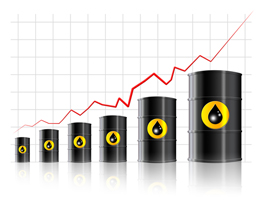Without Competition, Oil Companies to Suck Money Out of Our Wallets
 Below are some things to consider if you’re watching, listening to, or reading about Obama’s speech on energy in Miami today. They came to me from the Natural Resources Defense Council (NRDC) by email a few hours ago. Before sharing those insightful comments though, I’ll share a quick comment I sometimes mention when discussing oil prices, a comment made by my Texan grandfather, who was Exxon’s chief excavation geologist for all of the United States except California and Alaska when he retired. That comment it: “We just got spoiled.” This was in reference to Americans’ complacency with cheap gas and our expectation that prices stay where they are, or even go down. Oil production in the U.S. peaked decades ago — nothing’s going to change that. But, on to these great comments by NRDC, which include a lot more important points on this matter:
Below are some things to consider if you’re watching, listening to, or reading about Obama’s speech on energy in Miami today. They came to me from the Natural Resources Defense Council (NRDC) by email a few hours ago. Before sharing those insightful comments though, I’ll share a quick comment I sometimes mention when discussing oil prices, a comment made by my Texan grandfather, who was Exxon’s chief excavation geologist for all of the United States except California and Alaska when he retired. That comment it: “We just got spoiled.” This was in reference to Americans’ complacency with cheap gas and our expectation that prices stay where they are, or even go down. Oil production in the U.S. peaked decades ago — nothing’s going to change that. But, on to these great comments by NRDC, which include a lot more important points on this matter:- Our fundamental problem surrounding gas prices in America is a lack of choice. With few exceptions, we must all fill our cars with oil-based gasoline. If we don’t like it, too bad. As long as oil maintains its monopoly on our transportation system, we remain shackled to high gas prices, global instability and an industry that can continue to take record profits because it lacks real competition.
- The spike in gas prices we’re seeing now is because of two things: Increased demand from our improving economy and rising tensions with Iran. According to analysis from Wall Street, we can only expect these price spikes to continue.
- More drilling in the United States won’t make a difference — not now, not in the future. The United States uses about 25 percent of the world’s oil, but has less than 3 percent of the world’s known oil reserves, according to the U.S. Energy Information Administration. We could drill every drop of oil there is in the United States, but we’d still be dependent on imported oil. We’d still be subject to global oil prices with every gallon we pump.
- The number of oil rigs in the United States has quadrupled in the past three years and we’re already producing more oil than we have in nearly a decade. What have gas prices done amid all this additional drilling so far? Continue to rise.
- Oil is priced and traded as a global commodity, and foreign governments control about 90 percent of the oil traded globally. The only way to avoid high prices, then, is to quit buying so much oil.
- The proposed Keystone XL tar sands pipeline will do nothing to make gas prices lower. Canadian companies want to build the pipeline to the Gulf of Mexico for a reason: to reach global markets, not to bring more oil to the United States. In fact, analysis shows Keystone XL could actually drive up oil prices in some parts of the United States.
- As NRDC Executive Director Peter Lehner put in a Miami Herald piece on Thursday, “the simple truth is, we can’t drill our way out of our addiction to oil.”
Increasing new car mileage standards to 60 miles per gallon by 2025, for instance, will cut our oil usage by more than a million barrels per day — saving the average driver $4,400 over the life of a vehicle.
Investing in public transportation — something Republicans in the House of Representatives are currently trying to kill — will give more people alternatives to the gas pump, while at the same time taking more cars off our gridlocked roads.
Programs that encourage ride sharing, bicycling and walking give Americans more choice too, and send less of our money to oil companies and foreign countries.
The answer to high gas and oil prices isn’t making America more dependent on gas oil.
The real answer is giving Americans more choices in how we move around — and using American ingenuity to do it.
You can return to the main Market News page, or press the Back button on your browser.

